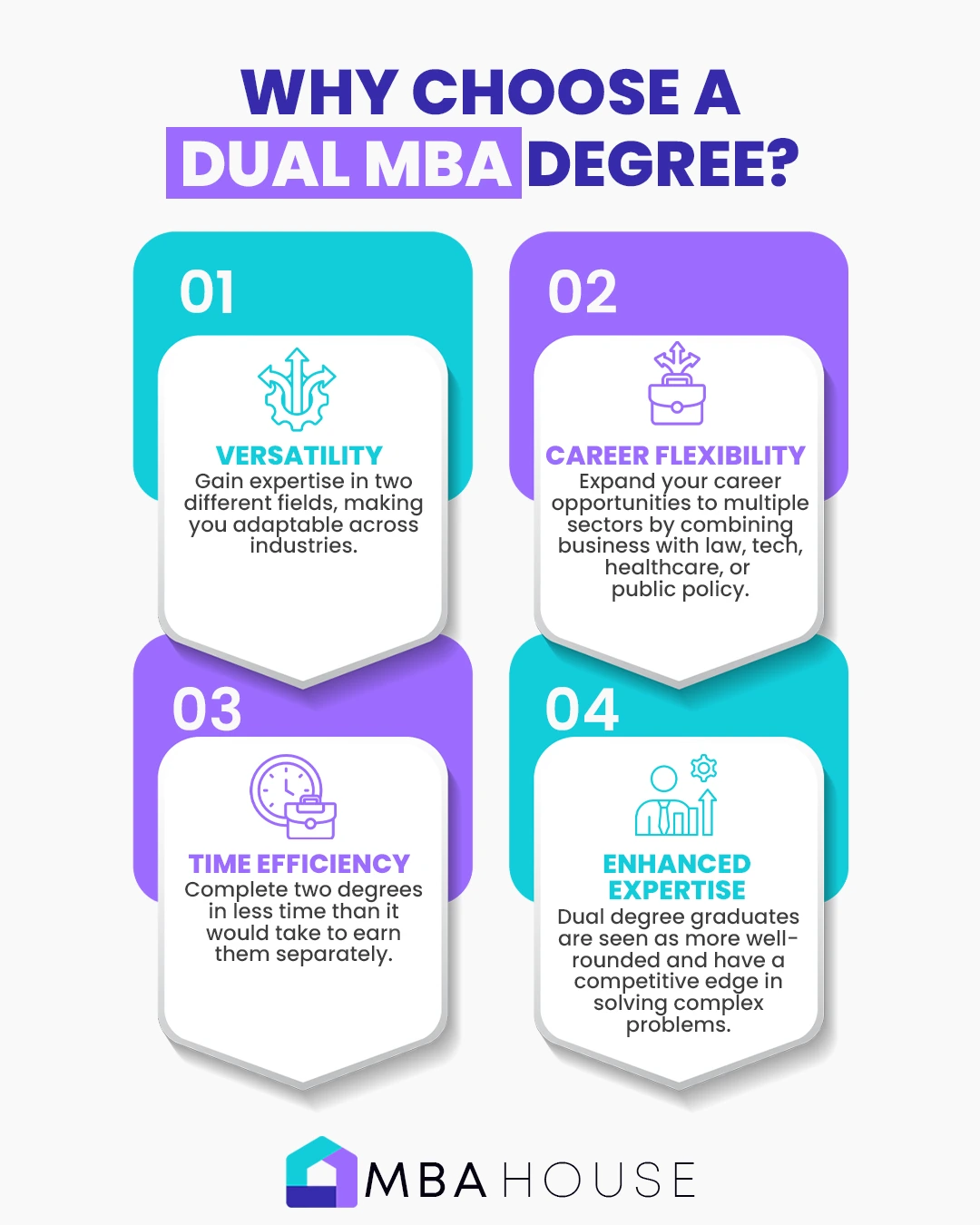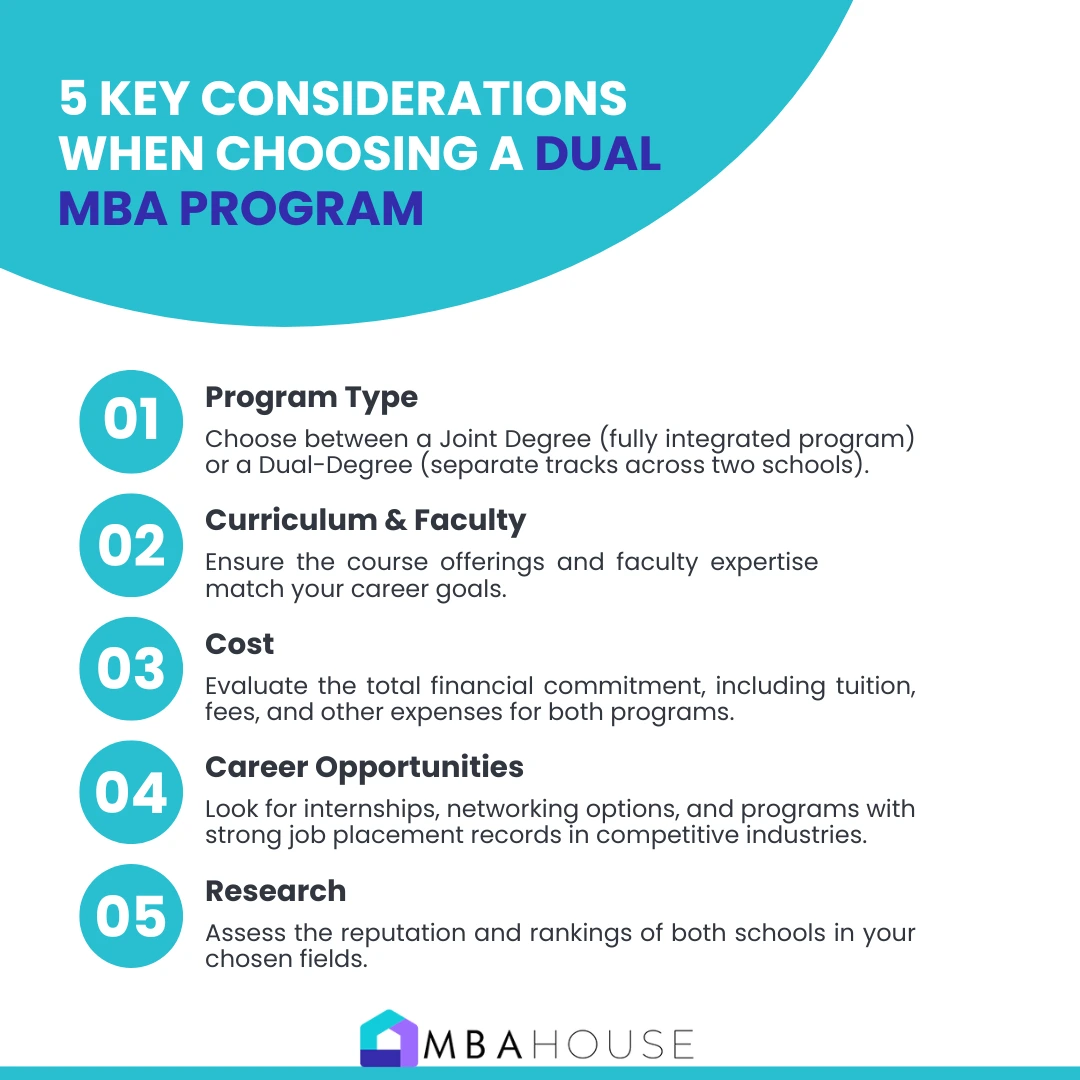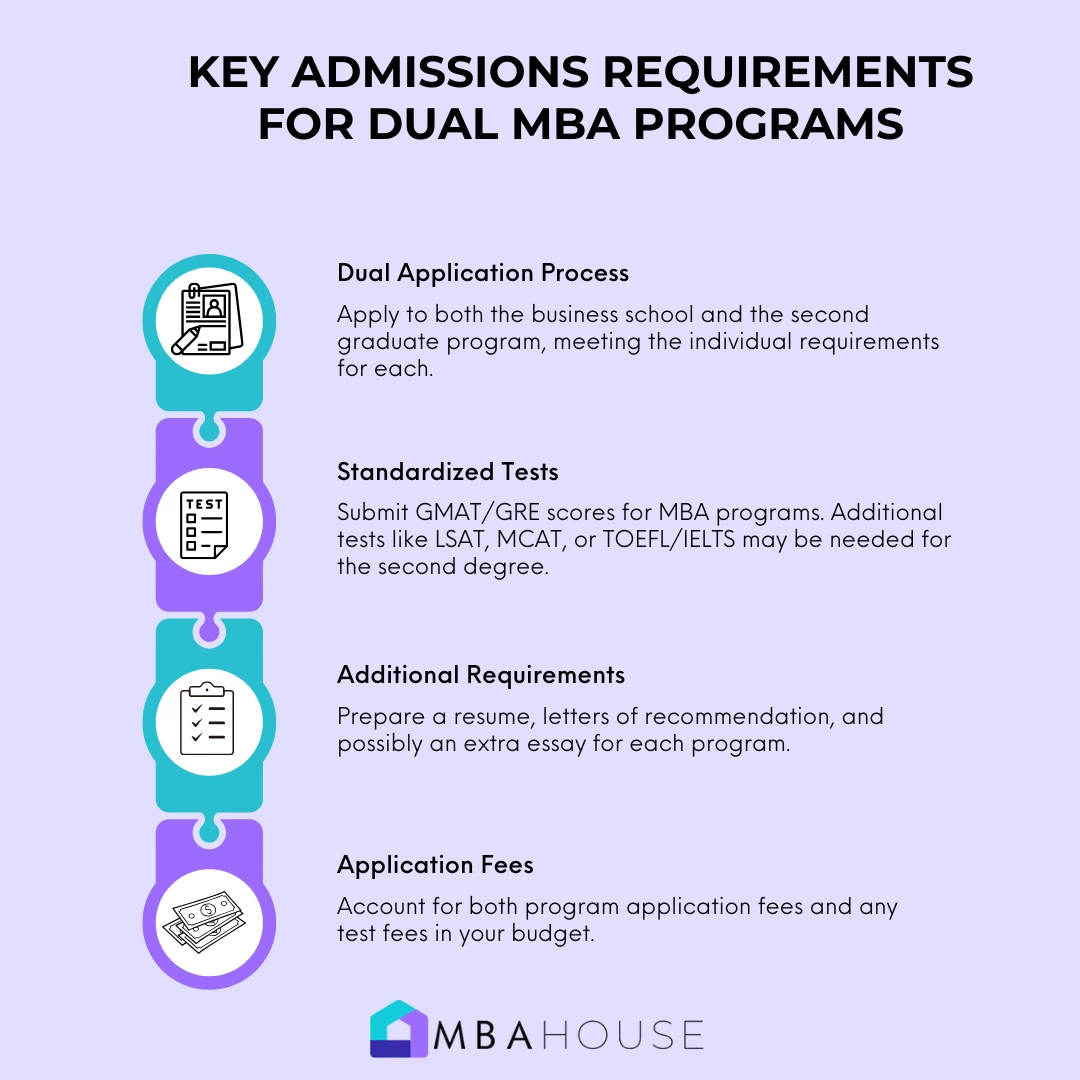Are you contemplating pursuing an MBA but also interested in another field of study? Many aspirants face this dilemma, wondering how they can combine two passions or skill sets without sacrificing one for the other.
If so, dual MBA programs might be the perfect fit for you. These programs, also known as JD MBA programs when combined with law, offer a unique opportunity for students to pursue two graduate degrees simultaneously. Whether you’re interested in pairing your MBA with law, engineering, or public health, dual degrees allow you to blend business education with another specialized field, giving you an edge in today’s competitive job market.
But what exactly is a dual degree program? And more importantly, is it worth the extra effort? In this blog, we’ll dive deep into what dual MBA programs offer, which universities are leading in these programs, and why pursuing two degrees at once can be a game-changer for your career. Whether you’re considering a joint degree to broaden your skills or want to focus on two areas of passion, this guide will help clear up all your doubts, answer your questions, and guide you toward making the right decision for your future.
What is a Dual Degree Program?
A dual degree program allows students to earn two degrees concurrently, often in a shorter time than if they pursued each degree separately.
For example, if you’re pursuing an MBA along with a degree in healthcare, law, or engineering, you can often count some core courses for one degree as electives for the other. This synergy between programs reduces the overall time and cost of education while broadening your professional expertise.
Dual degree programs vary by university. Some schools offer pre-established dual degree options, while others allow students to create custom combinations based on their unique interests. In most cases, you must apply separately to both schools or programs, meeting the admission criteria for each.
Why Choose a Dual Degree MBA Program?

Choosing an MBA dual degree program comes with numerous advantages. Here’s why many professionals find it to be a game-changer:
- Versatility: You are equipped with skills from two disciplines, making you more versatile in the job market.
- Career Flexibility: By combining business knowledge with another specialized field, your career opportunities expand across multiple industries.
- Time Efficiency: Dual degree programs typically take less time to complete than two separate degrees.
- Enhanced Expertise: Employers value the diverse skillset of dual-degree graduates, as they often bring a well-rounded perspective to solving complex problems.
Top 10 MBA Dual Degree Programs
Now, let’s explore some of the top-ranked joint MBA programs that blend various disciplines to offer students unmatched career potential.
1. Harvard Business School
Harvard’s dual degree MBA programs offer an array of options by partnering with six graduate schools. These programs include:
- Master of Public Policy + MBA
- Master of Public Health + MBA
- JD/MBA
- MD/MBA
- MS/MBA: Engineering Sciences
- MS/MBA Biotechnology: Life Sciences
Harvard is known for combining business acumen with fields like healthcare, public policy, and technology. Each of these combinations enhances your ability to take on leadership roles across sectors.
2. Stanford Graduate School of Business
Stanford provides six major joint degree programs MBA, including:
- JD/MBA
- MA in Education/MBA
- MS in Computer Science/MBA
- MPP/MBA
Stanford’s unique collaboration between business and technology makes it a preferred choice for those who want to lead in tech industries while having a strong business foundation.
3. Wharton School of Business, University of Pennsylvania
Wharton offers diverse MBA dual degree programs that combine business with international studies and healthcare management. Some prominent programs include:
- MBA/MA in International Studies (Lauder Program)
- MBA/MPH in Healthcare Management
- JD/MBA with Penn Law
Wharton’s global perspective and strong connections with healthcare industries make these programs ideal for students interested in international business or healthcare.
4. University of Chicago Booth School of Business
Chicago Booth stands out with 10 unique joint degree programs MBA, including:
- MBA/MD
- MBA/MA in Social Work, Social Policy, and Social Administration
- MBA/MA in International Relations
These programs focus on blending business with public policy, social work, and healthcare, catering to individuals aiming for leadership roles in public service or international relations.
5. Columbia Business School
Columbia’s dual MBA programs are designed for students who want to explore careers in urban planning, law, or healthcare. Options include:
- MBA/MPH
- JD/MBA
- MBA/MS in Industrial Engineering
Students in these programs benefit from Columbia’s global network and urban setting, which provides unique access to industries like healthcare, engineering, and law.
6. Yale School of Management
Yale’s joint MBA programs offer cross-disciplinary exposure to fields like law, medicine, and environmental studies. Some of their popular programs include:
- JD/MBA
- MBA/MPH
- MBA/MEM (Master of Environmental Management)
Yale’s focus on social and environmental responsibility makes these programs perfect for students looking to make a difference in areas like healthcare, sustainability, and social justice.
7. MIT Sloan School of Management
MIT Sloan offers several MBA dual degree programs that integrate business with engineering and urban studies. These include:
- MBA/MS in Engineering
- MBA/Master in City Planning
MIT’s strong focus on technology and innovation makes it a top choice for those seeking to lead in fields like tech, urban planning, and engineering.
8. Kellogg School of Management, Northwestern University
Kellogg’s best dual MBA programs include the MMM (Master of Management and Manufacturing), which combines an MBA with a degree in manufacturing and engineering from Northwestern’s McCormick School of Engineering.
This program is ideal for those looking to lead in industries that require a combination of business and technical knowledge.
9. HEC Paris
HEC Paris provides multiple dual-degree options, including:
- MBA/MPA with Sciences Po
- MBA/LLM with Georgetown University
HEC’s strong European and international focus makes these programs suitable for students looking to work in global business environments.
10. IE Business School, Spain
IE offers several innovative dual degrees that combine business with technology and big data, including:
- MBA/Master in Business Analytics and Big Data
- MBA/Master in Digital Business and Innovation
IE’s cutting-edge approach to digital transformation makes it a leading school for tech-savvy business professionals.
Is a Dual Degree Worth It?
If you’re wondering if a dual degree is worth it with an MBA, the answer largely depends on your career goals. A dual degree is worth it for students who want to stand out in competitive fields, broaden their skill sets, and gain a more comprehensive education. However, dual degrees require significant time, effort, and financial investment, so it’s essential to weigh the benefits against the cost.
For example, someone combining an MBA with a Master of Public Health (MPH) will be uniquely positioned for leadership roles in healthcare management, a field where both business and public health knowledge are crucial.
Key Considerations When Choosing a Dual MBA Program

- Program Type: Decide whether you want a joint degree (fully integrated) or a dual-degree program (two separate tracks across different schools).
- Curriculum & Faculty: Review the course offerings and faculty expertise to ensure they align with your career goals.
- Cost: Consider the overall financial commitment, including tuition, fees, and additional expenses for both degrees.
- Career Opportunities: Look into the availability of internships, networking opportunities, and the program’s success in placing graduates in competitive positions.
- Research: Investigate the reputation of the schools involved and assess their standing in your chosen fields.
Admissions Requirements for Dual MBA Programs

- Dual Application Process: You’ll need to apply to both the business school and the second graduate program, fulfilling each school’s unique requirements.
- Standardized Tests: MBA programs typically require the GMAT or GRE. Other degrees may require additional tests like the LSAT, MCAT, or TOEFL/IELTS for international students.
- Additional Documents: Prepare to submit a resume, letters of recommendation, and possibly an extra essay for some programs.
- Application Fees: Be mindful of the application and test fees for both programs and include these in your overall budget.
Final Thoughts
In conclusion, pursuing a dual MBA program can be a transformative experience that expands your career possibilities. By combining your business education with another discipline, you open doors to diverse industries and roles that would otherwise be out of reach. Whether you are passionate about law, healthcare, engineering, or public policy, there is a dual degree program tailored for you.
As you embark on this journey, ensure you research the schools, their offerings, and admissions requirements carefully. From understanding the criteria to crafting an impressive application, securing compelling recommendations, and navigating financial aid and scholarships, every step is crucial.
REMEMBER: The best path forward is the one that aligns with your career aspirations and personal interests.
MBA House is here for you. Our dedicated team of Ivy-league-trained tutors and consultants is ready to tackle all aspects of your MBA preparation, helping you gain acceptance into your top choices faster—guaranteed. Reach out to us at [email protected] for personalized guidance and make your dream B-School acceptance a reality!
FAQs
Which dual degree is best with MBA?
The best dual degree depends on your career goals. Popular options include an MBA with a JD (Law), MPH (Public Health), or MS in Engineering.
Which MBA major has the highest salary?
Finance and technology-focused MBA majors typically offer the highest salaries.
Which MBA is highest in demand?
MBAs in technology management, healthcare, and data analytics are currently in high demand.
How long is a double-degree MBA program?
Most dual MBA programs take around three to four years to complete, though it varies by school.
What is the most beneficial MBA degree?
An MBA in Finance or Technology is considered among the most beneficial due to its broad applications and high salaries.
Which MBA dual specialization is best? Finance and healthcare or technology are often considered the best combinations due to the growing demand in these sectors.
What degrees are best after an MBA? A degree in Law (JD), Public Health (MPH), or Engineering (MS) are strong choices after completing an MBA.





Social Media